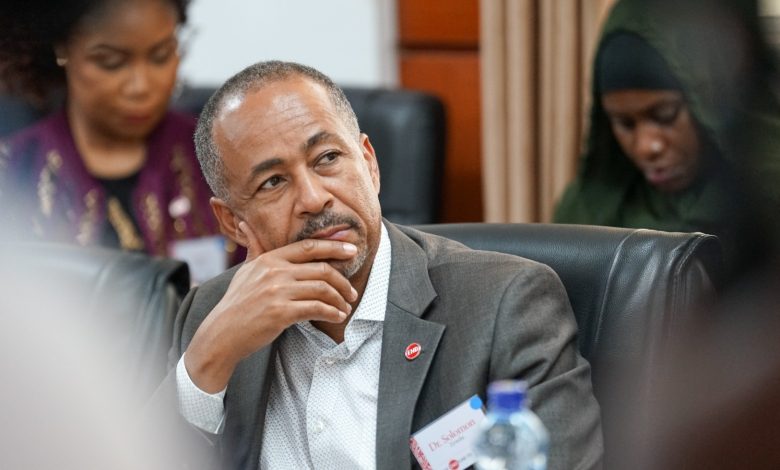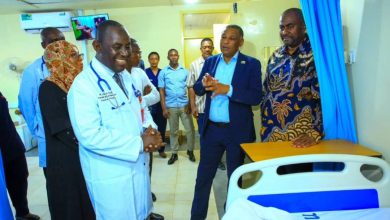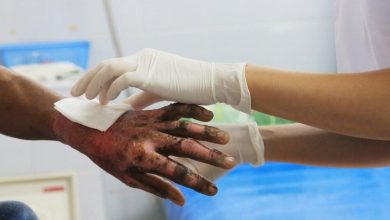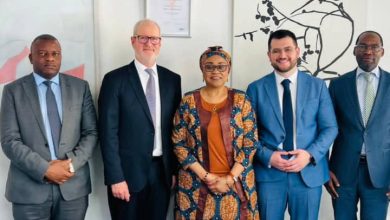Dr Zewdu: Africa’s health future depends on local leadership, innovative financing

AFRICA: NEWLY appointed Chief Executive Officer of the END Fund, a collaborative philanthropic organization, Dr Solomon Zewdu, has stated that Africa’s health future increasingly depends on local leadership and innovative financing over traditional foreign aid.
Dr Zewdu made the statement recently at the Africa CEO Forum in Abidjan, Côte d’Ivoire, where he discussed the multifaceted challenges and opportunities facing NTD elimination efforts.
Dr Zewdu,, a medical doctor and seasoned global health leader, is at the helm of an ambitious, multimillion-dollar strategy to eliminate Neglected Tropical Diseases (NTDs).
These debilitating conditions disproportionately affect African marginalized communities, impacting over 1.7 billion people worldwide.
With a background spanning philanthropy, public and private sector, and military career, Dr Zewdu, is now sharpening the fund’s focus on eliminating six major NTDs which are trachoma, onchocerciasis (river blindness), lymphatic filariasis, schistosomiasis, soil-transmitted helminths (intestinal worms) and visceral leishmaniasis by 2030.
Dr. Zewdu’s appointment comes at a crucial time, as he is strategically positioned to address the challenges of shifting global aid dynamics, including but not solely pertaining to the impact of the recent US government aid cuts.
He elaborated on the impact of these changing aid dynamics, explaining that while the END Fund doesn’t directly receive US government aid – instead pooling philanthropic and individual donor funds and leveraging corporate partnerships – the recent aid cuts have a significant ripple effect on the entire NTD ecosystem.
He emphasized that their partnerships are built on symbiotic relationships, and when ODA funded programs face challenges, the END Fund’s capacity for effective delivery and collective impact is also compromised, hindering their model of leveraging all opportunities to collaborate and stretch resources.
A unique blend of medical, strategic, government and donor expertise, he is upbeat that the efforts being made to lead the fight against NTDs, despite the “aid storm” will pay off.
He stated that “the elimination of NTDs is the greatest public health buy and an undeniable human legacy in restoring dignity and eliminating human inequity in communities whose greatest misfortune is to be born in poverty”.
At the conference, he highlighted that the broader NTD community recognizes the urgent need to prioritize critical issues, given the reported deficit in overseas development assistance, which ranges from 41 billion US dollars to 60 billion US dollars—an amount no single entity can fill.
“We work directly with governments, local and international partners to reach the communities directly impacted by these diseases in the most remote areas,” Dr. Zewdu noted. “We codesign the programs that our partners execute under the model of one plan , one budget and one measuring and evaluation and learning model.”
This collaborative approach, he emphasized, fosters country ownership and restores dignity in the affected. The persistence of these ancient diseases, he pointed out, “is primarily linked due to poverty, poor infrastructure and neglect.”
In discussions with the NTD community, he said, their immediate focus has been ensuring that donated drugs in the pipeline or already in-country don’t expire and that they most importantly reach their intended populations.
Additionally, carrying out planned surveys crucial for programming needs to remain a top priority in order not to reverse the gains made over years of successful interventions. He said the END Fund has categorized its needs into urgent priorities, mid and longer-term programming to navigate these complex funding landscapes effectively.
Since taking the helm, Dr Zewdu has been leveraging his extensive experience to further energize the END Fund’s efforts. His transition into the role followed a significant period at the Mastercard Foundation, where he served as the Senior Executive Resident for Strategy, Planning and Programming from August 2022. There, he was a key architect of the foundation’s health engagement portfolio, adeptly managing high-impact relationships and investments.
His function included crucial initiatives such as the Africa CDC Saving Lives and Livelihood program and the Institute Pasteur of Dakar (IPD) MADIBA vaccine manufacturing and biomedical workforce development project, fostering vital partnerships with global and continental agencies.
Dr Zewdu’s strategic approach to tackling NTDs is informed by an additional seven years at the formerly Bill & Melinda Gates Foundation (BMGF) now Gates Foundation. In his final role there as Deputy Director in Africa, he led a continental team in crafting and executing integrated, resilient programs in health, nutrition, disease elimination, and human capital development.
His expertise in emergency preparedness, cultivated during a decorated military career, was notably demonstrated when he coordinated the BMGF’s comprehensive Pan-Africa SARS-CoV-2 response and associated investments amidst the COVID-19 pandemic.
Throughout his career, Dr Zewdu has consistently championed public health and poverty alleviation. He has a proven track record of fostering effective collaborations between public and private sectors, engaging with ministries of health, education, and finance, as well as regional governments, academic institutions, philanthropic bodies, donors, and partners.
His significant contributions to shaping health and human development policies are widely recognized, further amplified by his active involvement in numerous working groups, scientific and programmatic advisory boards, executive committees, and strategic planning initiatives.
Dr Zewdu remains optimistic about achieving the 2030 goals.
“A fact to be celebrated is that out of the WHO target of 100 countries that would have eliminated at least one disease by 2030, 57 countries have already reached that milestone.”
He pointed to recent successes, such as Niger eliminating river blindness in April and Mauritania being validated by the WHO for eliminating trachoma shortly after his interview with Capital Newspaper at the aforementioned Africa CEO Forum. “We are truly making progress through partnership and leveraging existing resources and efficiencies.”
ALSO READ: WHO official urges African nations to unite for stronger health security
A medical doctor by profession with extensive expertise in global health, resilient health system design and disaster preparedness and response, Dr. Zewdu has practiced in both private and public healthcare settings. His leadership portfolio also includes the successful management of major U.S. Government programs, such as PEPFAR in Africa and the Department of Defense (DoD) HIV/AIDS Prevention Program (DHAPP) in Asia and the Pacific. He has also been instrumental in designing and administering philanthropic and academic grants focused on global health and sustainable human development.
As a published expert in his field and an influential voice in the global health arena, Dr. Zewdu contributes his expertise to multiple boards and scientific and technical advisory groups. His distinguished service in the U.S. Air Force, culminating in a career as a decorated Lieutenant Colonel and veteran, highlights his unwavering commitment to service and operational excellence.
Beyond his demanding professional commitments, Dr. Zewdu is an enthusiast of outdoor activities and sports. On a more personal note, he continues to navigate the lively, ongoing debate within his household as he, his wife, daughter, and two sons all support different English Premier League football teams.





